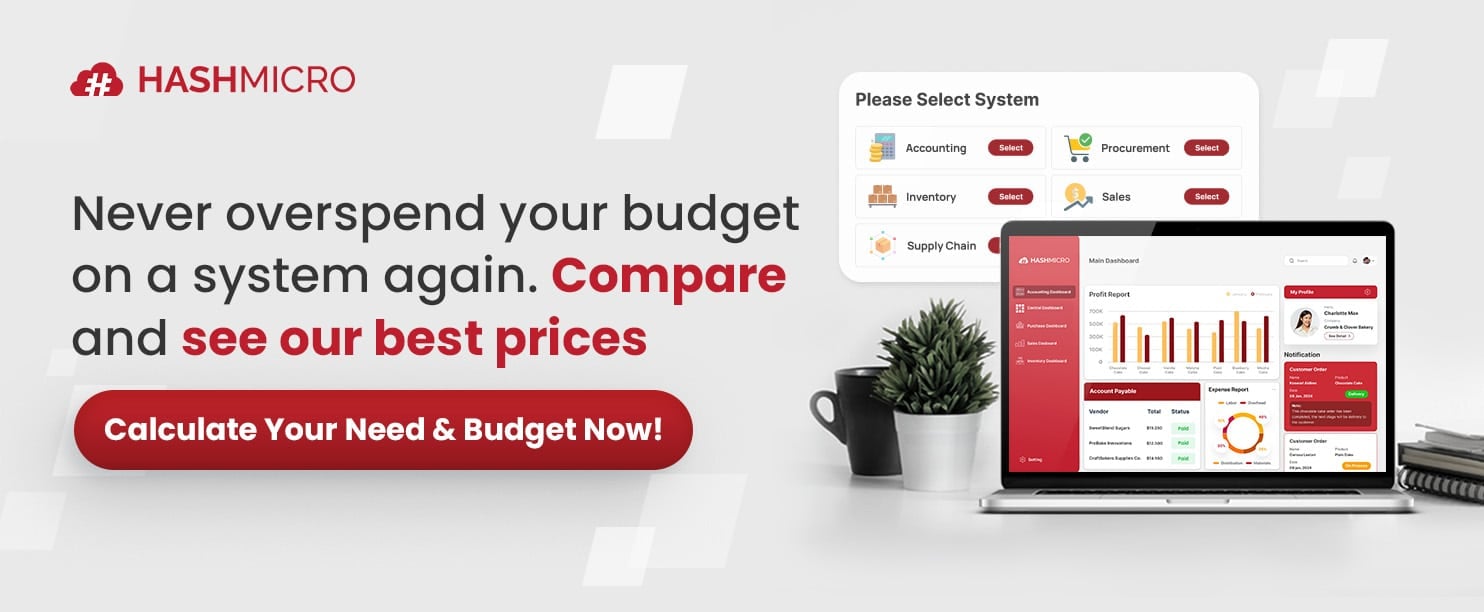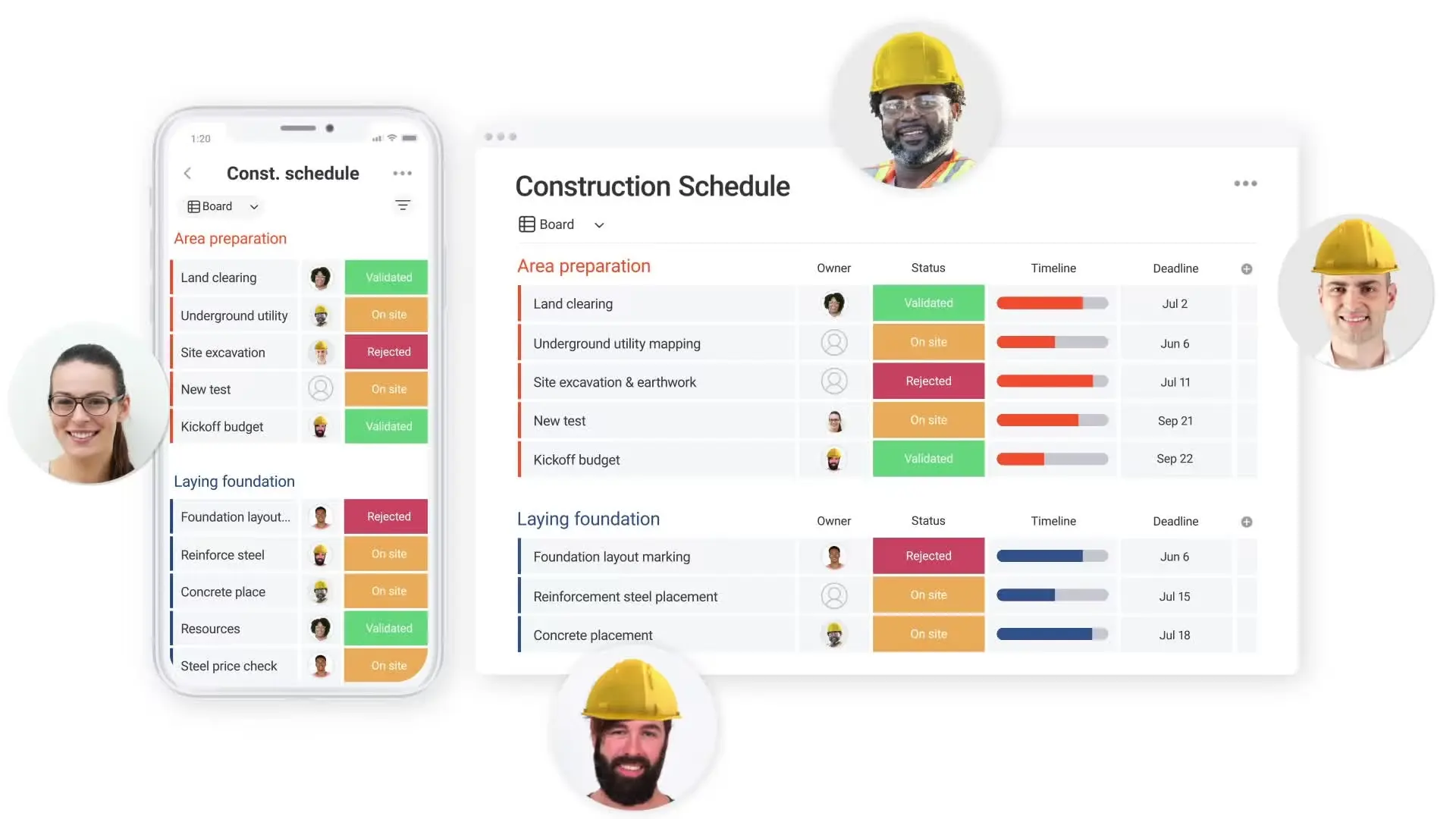Managing a construction project without the right construction ERP software can be overwhelming. Companies often struggle with planning, budgeting, inventory control, and maintaining quality standards.
Construction ERP software helps overcome these challenges by offering tools for scheduling, resource allocation, and real-time monitoring. According to Truelist, 95% of ERP users reported that ERP Software improved efficiency, better collaboration, and centralized data access.
However, selecting the right construction ERP software can be challenging with many options available. To assist you in making an informed choice, this article highlights 12 top construction ERP solutions in Malaysia that are worth considering. Read on to explore the best options for your business.
Table of Content
Content Lists

Key Takeaways
|
What is Construction ERP Software?
Construction ERP Software is a specialized software system designed to help construction companies manage their operations in an integrated manner. It consolidates key functions such as project management, inventory, finance, and procurement into a single platform.
Unlike generic ERP software construction ERP is tailored for industry-specific needs like contract billing, subcontractor management, equipment tracking, and compliance. It streamlines site activities with back-office operations, ensuring all departments use accurate, real-time information.
Moreover, construction ERP Software improves coordination between departments. For example the finance team can access real-time field data for budget analysis, while project managers can track progress instantly. This seamless information flow ensures smooth and efficient operations.
Key Features of a Construction ERP System
You now have a better understanding of what a construction ERP system is. However, it’s also important to explore the key features it offers. Below are some of the most common features found in construction ERP software:
- Project management
This feature enables real-time planning, scheduling, and tracking. Users can set timelines, allocate resources, and monitor progress. By tracking milestones, companies keep construction on schedule and reduce delays. - Financial management
The financial management feature covers budgeting, accounting, reporting, and cost analysis. It helps track expenses and revenue accurately while improving cash flow management through efficient handling of invoices and payments. - Inventory management
Materials and equipment are vital construction assets. This feature tracks inventory, manages procurement, and ensures timely on-site availability. Good inventory management prevents shortages, overstocking, and excess storage costs. - Human Resource (HR) management
HR management includes workforce scheduling, construction payroll processing, and attendance tracking. A centralized construction workforce management software allows companies to optimize workforce allocation based on project needs and effectively monitor employee performance and productivity. - Procurement management
This feature streamlines the purchasing process for construction materials and equipment. It includes vendor management, purchase requisition processing, delivery tracking, and quality control. Efficient procurement management helps companies save both time and costs. - Reporting and analytics
A robust ERP system offers real-time reporting and analysis tools. With instant insights, management can assess performance, spot issues, and make strategic improvements for greater efficiency. - Document management
In a centralized system, this feature stores and organizes project documents like contracts and blueprints. It ensures quick access to key information and supports regulatory compliance.
Top 12 Construction ERP Software for Businesses in Malaysia
Here are 12 recommended ERP software solutions for the construction industry that can help enhance the efficiency of your project management.
- HashMicro– AI-powered procurement for accurate, integrated business operations.
- Acumatica – ERP with finance, inventory, and AI insights.
- SAP Business One Software – Real-time, scalable ERP for projects and accounting.
- Procore – Mid-size project ERP with collaboration and budgeting tools.
- Oracle – Automates scheduling, inventory, and project cost control.
- Sage Construction Management System – Manages construction budgets, workforce, and project tracking.
- Epicor – Connects sales, inventory, and construction supply chains.
- Scale Ocean – Secure, multi-location inventory and data management ERP.
- Smartsheet – Simple tools for project scheduling and documentation.
- Microsoft Dynamics – ERP for large firms, finance, and operations.
- Monday.com – Customizable project management and real-time collaboration.
- Novade – ERP for construction QA, compliance, and projects.
1. HashMicro Construction ERP Software
HashMicro is a leading construction management software in Southeast Asia, built to simplify project monitoring and operations. It offers tools for tracking progress, managing budgets, inventory, equipment, materials, workforce, and generating reports.
With flexible monitoring options such as daily, weekly, or monthly companies can ensure their projects stay on track. Improved control over project timelines enables more efficient progress tracking. HashMicro’s construction ERP Software also offers a free demo for businesses looking to experience the benefits of this advanced construction management software and construction inventory software firsthand.
HashMicro offers expert consultation and specialized tools for construction, including an integrated supplier database, efficient asset management, and contractor-focused accounting software to simplify budgeting and financial management.
Here are the features offered by the HashMicro construction system:
- Budget S-curve management: This feature allows users to visualize project budget planning and expenses through S-curves graphically.
- S-curve plan vs actual project cost/progress: This feature provides a visual comparison between the plan and actual both in terms of cost and project progress.
- In-depth budgeting type: This construction software allows users to create detailed budgets for various types, including materials, assets, petty cash, overhead, and subcontractors.
- Budget carry over: This feature allows unused leftover from a certain period to be carried over to the next period.
- Integrated with asset management: This software can track fuel consumption, operating duration, and asset user identification to reduce risk and improve operational efficiency.
- Integrated with accounting: The construction accounting software helps users to track profit and loss as well as balance sheet for each project to provide a clear and detailed financial picture.
| Pros | Cons |
|
|
2. Acumatica Construction ERP Software
Acumatica Construction is ERP software for the construction industry, offering cost-effective business management solutions. It includes features for financials, HR, inventory, and project scheduling.
A major benefit of Acumatica Construction is its integration of artificial intelligence (AI), which aids in data analysis and automating processes. This AI functionality delivers valuable insights into projects, including risk assessments and opportunities to improve efficiency.
Features:
- Inventory management
- Financial management
- Integration with vendors
| Pros | Cons |
|
|
3. SAP Business One Software for the Construction Industry
SAP Business ERP for construction is a business management system built to help construction companies streamline their operations. This software provides real-time reports, making it easier to track project progress, manage budgets, and make informed decisions based on data.
One of the key benefits of SAP Business ERP is its scalability, allowing construction companies to tailor the system to their specific needs, whether for small or large-scale projects.
Features:
- Project management
- Accounting management
- Sales management
- Inventory management
- Analysis and reporting
| Pros | Cons |
|
|
4. Procore Construction Software ERP
Procore is construction management software designed for medium-sized construction projects. It offers various features that aid in project management including document management, budget tracking, project scheduling, and real-time team collaboration.
With its user-friendly interface, Procore allows users to easily access project information at any time, facilitating efficient communication and coordination within teams.
The software’s flexibility and scalability make it an excellent choice for mid-sized construction companies seeking to enhance productivity and project management without compromising quality.
Features :
- Integrated platform
- Mobile project management
- Centralized information
| Pros | Cons |
|
|
5. Oracle ERP Software for Construction Industry
Oracle Construction is an ERP software for the construction industry designed to streamline construction project management. Its intuitive and easy to use interface makes the system quick and simple to implement.
The software includes various automation features such as budget management, project scheduling, inventory control, and reporting. These tools help construction companies reduce manual tasks and improve operational efficiency.
With automation in place, companies can track project progress in real time and make quicker, data-driven decisions to ensure that every construction phase runs smoothly and as planned.
Features:
- Schedule management
- Construction project and cost control
- Design and construction coordination
- Construction document management
- Construction payment management
| Pros | Cons |
|
|
6. Sage Construction Management System
Sage Construction is ERP software that helps construction companies manage projects efficiently through automation. It includes financial management, scheduling, inventory tracking, and workforce management software to optimize operations.
A key advantage is its ability to automate tasks like budget calculations, cost monitoring, and contract management. This improves accuracy, reduces errors, and saves time in project management.
Features:
- Organize projects and contracts
- Streamline the estimating process
- Manage the entire bid process in one system
- Manage projects and collaborate effortlessly
| Pros | Cons |
|
|
7. Epicor Construction Software ERP
Epicor Software Construction is an ERP solution for construction companies, offering integrated features. It includes sales management tools to streamline bidding, contracting, and tracking leads and transactions.
Features:
- Inventory and Supply Chain
- Sales Management
- E-Commerce
| Pros | Cons |
|
|
8. Scale Ocean Construction ERP Software
Scale Ocean’s construction system is a construction management software designed to assist companies in managing projects more effectively and efficiently.
One of its key benefits is robust data security, as the system is equipped with advanced security protocols to safeguard project information, financial data, and other sensitive details from potential cyber threats.
Features:
- Multi-location inventory
- Contract management
| Pros | Cons |
|
|
9. Smartsheet Construction Management System
Smartsheet Construction is project management software designed to simplify construction project tasks. Its user-friendly interface enables users from various backgrounds to operate it easily without specialized training.
Features:
- Document management
- Budget tracking
- Project management & scheduling
| Pros | Cons |
|
|
10. Microsoft Dynamics
Microsoft Dynamics Construction is an ERP solution for large construction companies, offering features to manage all aspects of the business. It includes tools for project management, finance, HR, and supply chain management.
Features:
- Reports and data analysis
- Finance and accounting management
- Cloud or on-premises deployment options
- Integration with third-party applications
| Pros | Cons |
|
|
11. Monday.com ERP Software for Construction Industry
Monday.com Construction is a project management platform that helps construction companies efficiently manage and track their projects. Its key benefit is the ability to provide real-time updates, enabling all team members to monitor the progress of the project as it happens.
Features:
- Financial management
- Real-time updates
- Document management
- Progress tracking
| Pros | Cons |
|
|
12. Novade Construction ERP Software
Novade Construction System is project management software for the construction industry, designed to improve project efficiency. Its user-friendly interface lets users easily navigate features without extensive training.
Features:
- Quality assurance
- Occupational health & safety compliance
- Progress & resource tracking
- Asset management
| Pros | Cons |
|
|
Choosing the Right ERP for Your Construction Business
Selecting the right construction ERP system is crucial for enhancing the efficiency and productivity of your projects. As each construction business has its own specific requirements, here are 5 tips to guide you in choosing an ERP system that best fits your business needs:
- Understand your business needs
Before choosing an ERP system, assess your business needs—whether in project management, finance, inventory, or procurement. Understanding these needs, along with your project size and complexity, helps you select the right features and make a more effective investment. - Evaluate features and functionality
Ensure your chosen ERP system supports all operational needs. Look for features like project management, budgeting, inventory, HR, and reporting. It should be integrated across departments and scalable for future growth. - Check scalability and flexibility
Construction businesses often grow in both project size and operational complexity, choose a scalable and flexible ERP system that evolves with your needs. A good ERP should let you add features or modules without major changes to your setup. - Consider ease of use and implementation
The ideal ERP system should be user-friendly and accessible to all team members. Ensure it offers smooth implementation and sufficient staff training, as complex systems can hinder productivity if difficult to use. - Evaluate vendor support and costs
Before deciding, review the ERP vendor’s cost structure, including licensing, installation, training, and support. Choose one with reliable technical support and strong customer service to ensure smooth system use.
Conclusions
Construction ERP plays a crucial role in ensuring the success of a construction business. With features that facilitate the integration and automation of various operational processes, ERP systems can significantly enhance efficiency, productivity, and the accuracy of decision-making.
One ERP solution worth considering is HashMicro Construction Management Software. This application offers several benefits, such as allowing unlimited users, which means the entire team can participate without access limitations.
Additionally, HashMicro integrates seamlessly with other systems, enabling data from multiple sources to be processed together, maximizing the effective use of all resources. Interested in exploring HashMicro’s construction ERP? You can schedule a free demo now!

FAQ Construction ERP Software
-
Can AI replace ERP?
Can AI replace ERP? AI cannot entirely replace ERP (Enterprise Resource Planning) systems. While AI can enhance and optimize various aspects of ERP, ERP involves a comprehensive suite of integrated applications for managing business functions.
-
Can ERP be automated?
ERP (Enterprise Resource Planning) systems automate the process of collecting and processing financial data. They can generate various financial reports, such as balance sheets and income statements, automatically. This saves time and ensures accuracy in financial reporting.
-
How many ERP systems are there?
There are three main types of ERP systems that function with different deployment model options. The most common types of ERP systems include cloud ERP, on-premise ERP, and hybrid ERP.












































